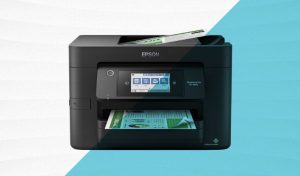Today’s label printers( 5 Best Label Printers) range from small desktop units for file-folder paper labels to industrial-grade ones for labeling cables with plastic strips. Here’s how to pick the right labeler, along with our top lab-tested picks for different uses.
The first is the type of small desktop printer that prints paper labels for addresses and file folders.
These days, you can find many types and levels of label printers (in terms of price, label variety, and volume). They range from inexpensive models for labeling photos or containers and other articles around the house, to the mission-critical office and industrial printers used for shipping labels, warnings (“Stop!” and “Caution!” stickers), barcodes, product labels, and more. Here’s a rundown of how to navigate the label-printer market, along with our top tested picks.
5 Best Label Printers
- Phomemo Label Printer.
- Thermal D520 Label Printer.
- D520-BT 4X6 Label Printer.
- NETUM NT-LP110A Thermal Label Printer.
- Phomemo Bluetooth Thermal Printer.
Label printers are specialized devices used to print adhesive labels that can be affixed to various items such as packages, files, folders, or products. We listed the 5 Best Label Printer . We’ve selected the list based on their popularity quality-price durability user opinions and more.
Types of Label Printers:
- Direct Thermal: These printers use heat to print on special heat-sensitive paper, eliminating the need for ink or toner cartridges.
- Thermal Transfer: They use a thermal print head to transfer ink from a ribbon onto the label, suitable for more durable and long-lasting labels.
- Desktop vs Industrial: Desktop models are compact and suitable for light to moderate use, while industrial models are larger and more robust, designed for high-volume printing.
Features to Consider:
- Resolution: Measured in dots per inch (dpi), higher resolution provides sharper and clearer labels.
- Connectivity: Options include USB, Ethernet, Wi-Fi, and Bluetooth, offering flexibility in connectivity.
- Label Width: Determines the maximum width of labels the printer can handle.
- Speed: Indicates how quickly labels can be printed, measured in inches per second (ips).
Advantages:
- Efficiency: Quickly print custom labels on demand.
- Cost-effectiveness: Eliminate the need for pre-printed labels and reduce waste.
- Flexibility: Easily create labels with varying information such as barcodes, text, and graphics.
Including these details can help readers understand the versatility and benefits of label printers in various settings, making your blog post informative and helpful.






